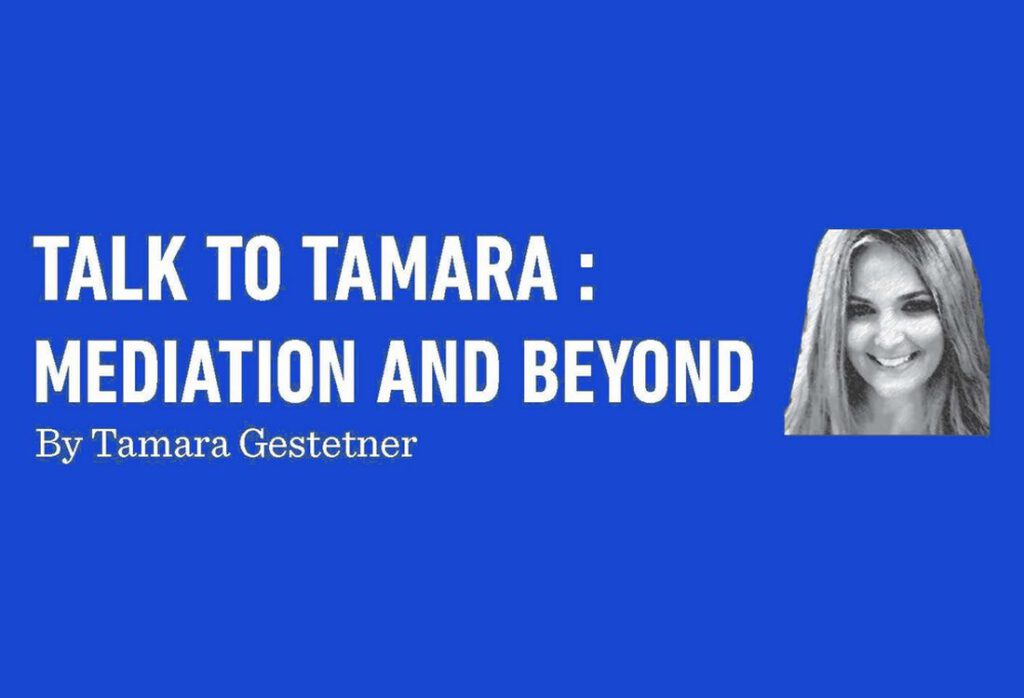Is One Good Friend Really Enough?
I was watching a show last week, and there was this moment when the mother turned to her daughter and said something that stood out to me, mostly because it’s something I probably would have said to my own daughter. Honestly, I probably still say it: “All you need in life is one good friend, and you can get through anything.”
And for a long time, that felt true. Because I had that one good friend: my mother.
She was my person. The one I called when something beautiful happened, when I was heartbroken, or when I needed someone to say, “You’re not crazy. That was very hard.” She was my grounding force. She saw me in ways that no one else did. And now she’s gone.
It’s been eight years since I lost her. And while I’ve rebuilt much of my life, this quiet truth keeps tugging at me: I haven’t been able to fill the space she left. I keep thinking that eventually someone will show up and pick up where she left off. But no one has because no one can fill her shoes.”
The statement the mother said to her daughter stirred a question in me: Is one good friend enough? And the follow up question: What happens when the friend you had dies and is gone forever?
And another, even deeper question: How do we make space for new friendships as adults, the real, soul-deep kind, when life already feels so full and so lonely at the same time?
Turns out, I’m not the only one asking these questions.
According to the American Survey Center, the number of Americans who say they have no close friends has quadrupled since 1990. And a Gallup report from 2023 found that only 39% of adults say they feel “very connected” to others, despite being more digitally connected than ever. The irony is the heartbreaking truth that we’re constantly scrolling through other people’s lives, yet we feel increasingly alone in our own.
Loneliness isn’t just uncomfortable—it’s dangerous. Research out of Harvard’s 85-year study on adult development found that the number one predictor of long-term happiness and health isn’t success, money, or even exercise, it’s quality relationships. Strong social connections are correlated with lower rates of anxiety and depression, better immune system functioning, and even longer life spans. Loneliness, on the other hand, increases risk of early death by nearly 30%, putting it on par with smoking and obesity.
So yes, friendship matters. Deeply.
But adult friendships? They’re hard. There’s no high school or seminary to bond in, no late-night AIM chats (now I’m really showing my age *smile emoji*), and no summer camp. What we have are carpools, deadlines, packed schedules, and emotional exhaustion. Most of us are trying to make it through the day, and time for friends seems like a luxury, one we don’t know how to schedule in our day.
Yet, we ache for it. For real connection. For people who make us laugh until we cry and aren’t afraid to sit with us when we do cry. For someone to remember our kids’ names, our hard days, and the dreams we’re quietly afraid to say out loud.
I used to think my spouse should be that person: the one-size-fits-all emotional support system. But that’s not fair to him. And it’s not fair to me, either. We need more than one source of connection. We need different friends for different parts of ourselves.
And no, I haven’t found someone to “replace” my mother. I don’t think that’s the goal anymore. What I want now are friendships that reflect who I am now, not who I was when I lost her.
So how do we actually do that?
How do we make friends—real friends—as grown women?
Here’s what the research says helps (and what I’ve found to be true in my own life):
Repetition breeds connection. Psychologists call it the mere exposure effect: the more you see someone, the more likely you are to form a bond. That means showing up regularly somewhere, whether at a weekly class, a volunteering group, even a neighborhood walk at the same time each day.
Be the inviter. Waiting for the perfect friendship to fall into your lap is like waiting for the perfect body to show up without working out. Take the risk of asking someone for coffee. Send the text. Make the first move.
Go first with depth. We often wait for people to earn our vulnerability. But sometimes, it’s going first that opens the door. Share something real. Let people see the messy, beautiful truth of where you are. That’s where intimacy grows.
Let go of the fantasy friend. The perfect friend who meets every need, texts back in 10 seconds, and always knows the right thing to say? She doesn’t exist. But a pretty good friend, the one who shows up, listens, and tries, that’s the real magic.
And maybe most importantly, allow friendships to evolve. Some will deepen. Some will drift. Some are for a season. And some surprise you years later by returning in unexpected ways. Adult friendships are not always clean or easy. But they are worth fighting for.
So no, I don’t believe one friend is always enough.
And I don’t believe anyone can truly replace the loss of a mother, a best friend, or someone who once knew your soul by heart.
But I do believe in building a village. One connection at a time. Not to replace what was, but to nurture who we are now.
If you’re still searching for your people or you’re feeling like you’re the only one who hasn’t figured it out, you are not alone. Most of us are still building, still grieving, still trying.
But we were never meant to carry life alone.
And no matter how much time has passed, it’s not too late to let someone in.
If you have a question about life, career goals, a situation you’re struggling with, or a topic you want to explore, send it my way and I will address it in a future article. Whether it’s about careers, relationships, personal growth, or navigating life changes later in life, I want to hear from you. Email me at [email protected]. Let’s talk about life, success, failure, reinvention, and everything in between. Because if there’s one thing I know for sure, we are never done evolving. n
Tamara Gestetner is a certified mediator, psychotherapist, and life and career coach based in Cedarhurst. She helps individuals and couples navigate relationships, career transitions, and life’s uncertainties with clarity and confidence. Through mediation and coaching, she guides clients in resolving conflicts, making tough decisions, and creating meaningful change. Tamara is now taking questions and would love to hear what’s on your mind—whether it’s about life, career, relationships, or anything in between. She can be reached at 646-239-5686 or via email at [email protected]. Please visit TamaraGestetner.com to learn more.











